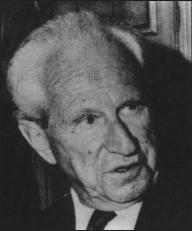Herbert Marcuse 1941
Written: 1941;
Source: Reason & Revolution. Excerpts reproduced here;
Publisher: Ark Paperbacks, 1964;
Transcription and HTML Markup: Andy Blunden;
Proofed: and corrected by Chris Clayton 2006.

PART I. The Foundations of Hegel's Philosophy
1. The Socio-Historical Setting
2. The Philosophical Setting
I. Hegel's Early Theological Writings
II. Towards the System of Philosophy
1. The First Philosophical Writings
2. The First Political Writings
3. The System of Morality
III. Hegel's First System
1. The Logic
2. The Philosophy of Mind
IV. The Phenomenology of Mind
V. The Science of Logic
VI. The Political Philosophy
VII. The Philosophy of History
PART II. The Rise of Social Theory
Introduction: From Philosophy to Social Theory
I. The Foundations of the Dialectical Theory of Society
1. The Negation of Philosophy
2. Kierkegaard
3. Feuerbach
4. Marx Alienated Labour
5. The Abolition of Labour
6. The Analyis of the Labour Process
7. The Marxian Dialectic
II. The Foundations of Positivism and the Rise of Sociology
1. Positive and Negative Philosophy
2. Saint-Simon
3. The Positive Philosophy of Society: Auguste Comte
4. The Positive Philosophy of the State: Firedrich Julius Stahl
5. The Transformation of the Dialectic into Sociology: Lorenz von Stein.
CONCLUSION: The End of Hegelianism
1. British Neo-idealism
2. The Revision of the Dialectic
3. Fascist 'Hegelianism'
4. National Socialism Versus Hegel
Further reading:
System of Ethical Life, Hegel 1802/3
Philosophy of Right, Hegel, 1821
The Young Hegel, Georg Lukacs 1938
Hegel & Modern Society , Shlomo Avineri, 1972
Political community and individual freedom in Hegel’s philosophy of state, Pelczynski, 1984
Crime and Ethical Life: Hegel’s Intersubjectivist Innovation, Axel Honneth 1992